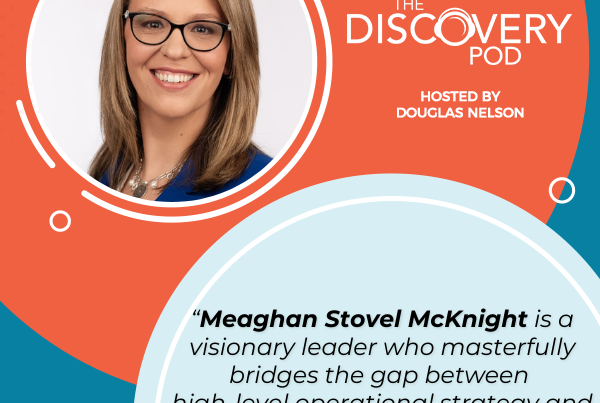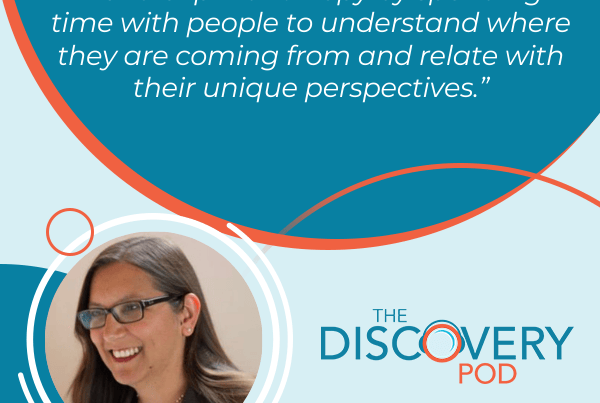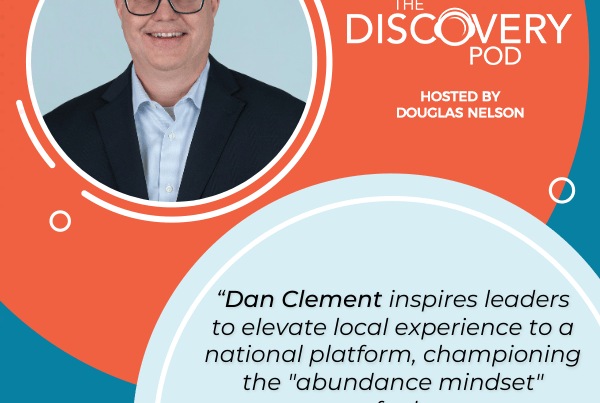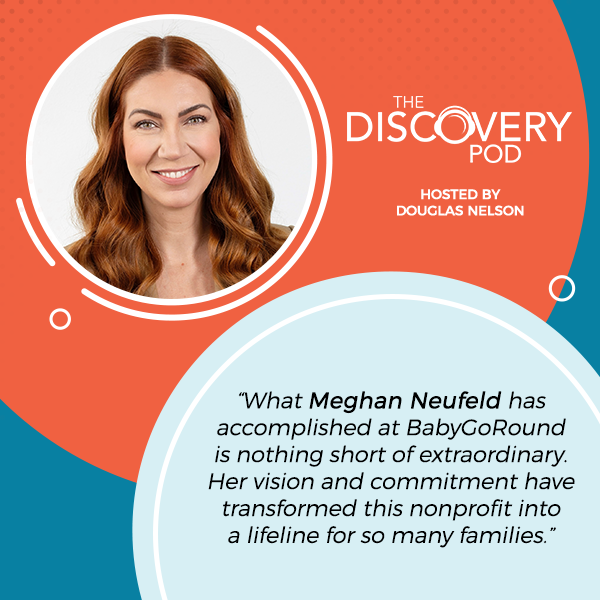
BabyGoRound takes center stage as Meghan Neufeld, Executive Director, shares the inspiring journey behind this innovative social-profit organization. Douglas explores how BabyGoRound provides gently used baby gear to low-income families in BC’s Lower Mainland, easing household burdens and helping babies thrive. Meghan offers insights into the challenges of working with funders, expanding services, and navigating the growth of a unique nonprofit. Tune in to hear how BabyGoRound continues to transform lives while keeping essential items out of landfills.
—
Listen to the podcast here
BabyGoRound With Meghan Neufeld, Executive Director
Introduction To BabyGoRound
In this episode, we have Meghan Neufeld. Meghan Neufeld is the Executive Director of BabyGoRound, an innovative social-profit organization that provides gently used and new baby gear for families in BC’s Lower Mainland. In our conversation, Meghan talks about what it means to work with funders on developing new and innovative ways to deliver service.
What it is to come into a new organization and build a relationship with the board and the essential partners of the organization. She shares a little insight into what it was like for her in her journey to being Executive Director there at BabyGoRound. It is a thoughtful conversation about a very important and innovative organization in BC’s social profit sector. You’re going to want to listen to Meghan Neufeld.
Welcome to the show, Meghan.
Thanks for having me, Doug.
Meghan, I’m really looking forward to this conversation and learning more about your own experience, and how you came to be Executive Director there at BabyGoRound. First, tell our listeners about BabyGoRound. What is it that your organization does, and who do you serve?
Expecting a baby is one of the most exciting times in any parent’s life, but imagine anticipating the birth of your child, knowing that you don’t have a safe place for them to sleep, blankets to keep them warm, or dozens of other everyday essentials your child needs to safely grow and thrive. This is the agonizing reality faced by thousands of low-income families in the Lower Mainland every day. BabyGoRound is the only non-profit in BC dedicated to providing low-income families with everything they need to keep their child safe.
Imagine expecting a baby but having no safe place for them to sleep. BabyGoRound helps low-income families provide the essentials their babies need. Share on XWe collect quality-use baby gear from families across the Lower Mainland and connect these critical supplies to parents and babies who need them the most. Families can come in and choose a custom baby gear kit from our store-like headquarters, and they can access things like cribs, bassinets, strollers, breast pumps, high chairs, bouncy chairs, play mats, as well as other nursery items like clothing, the bedding, books, developmental toys that’ll carry their newborn through the first two years of life.
BabyGoRound relies upon a community of individual donors to make this happen, connecting their gently used gear to families facing the biggest need. We do this with our well-established network of over 120 health and social service agencies that help us identify the most vulnerable and make sure that they receive the help first. By ensuring that the gently used baby essential items stay out of landfills and in the hands of families facing the biggest obstacles, BabyGoRound eases household anxiety.
We free family dollars for other obligations like rent or food in this tentative economy and create brighter beginnings for babies and their families. This year marks 12 years of impact at the organization. During this time, we have supported over 12,000 families, helping them create safe and welcoming environments, and saving them in total an unbelievable $1.7 million in baby gear. By focusing on collecting pre-loved gear from members of our community, we have diverted over 430,000 pounds of gear and clothing from entering the Lower Mainlands waste streams before the end of its useful life.
BabyGoRound helps families free up dollars for rent and food by providing essential baby gear, easing household anxiety in today’s tough economy. Share on XIt’s an amazing story and I appreciate you giving us that level of detail. When I first heard about Baby Go Round, it was an organization I thought was a great idea. There must be lots of them. There must be many of them. A very competitive social profit landscape around this organization. When we got to know you and your organization, it really was a surprise it was the only one. I’m wondering if you could share the origin story behind BabyGoRound and how you’ve grown so much over the past twelve years and served so many.

BabyGoRound: By diverting 430,000 pounds of baby gear from landfills, BabyGoRound not only helps families in need but also contributes to environmental sustainability.
It started with Jennifer Randall Nelson, a local Vancouver woman, who actually tried to donate her children’s things. She couldn’t find somewhere to take it. Most thrift stores, secondhand stores, won’t actually accept baby gear items. She, along with some people from her network, started BabyGoRound. Face the World Foundation came on board and actually paid for the first 3 years of rent so that we were able to acquire the space at Kingsway where we’ve been the whole 12 years.
For the first, I’m going to say it was about seven years, the organization was entirely run by volunteers, which is incredible. It slowly grew and hired a part-time employee. It was January 2020, right before COVID. They hired their first professional executive director. Lisa, who was my predecessor, came on board and she had to navigate the closures that came and really took what was an in-person model, created a hybrid model with curbside pickup. Since then, we are now existing in a hybrid model, but it’s allowed us to really expand and we’re now a team of ten.
Again, it is one of those stories that is just so remarkable, both where it came from and where it is today. When I think about BabyGoRound and the conversations that you and I have had in the past, I am struck by how innovative it is as an organization to dealing with an issue that people probably don’t think a lot about.
It’s not top of mind for a lot of people, and so much of our sector and clients we work with across the country are trying to find a way to be innovative and seek out collaboration. Then you have to balance that with finding funders who are willing to fund something that hasn’t been done before or find a new way of doing things. Is that something that you faced in raising money for your growth at the organization, and how have you dealt with it?
The Challenges Of Raising Funds For Innovation
You’re correct. It is, I would say, a challenge for the sector as a whole. A lot of funders really focus on the outcomes and they don’t necessarily provide the space for innovation or that trial-and-error period where you can try something new, evaluate it, and then potentially fix what needs fixing before you can really see outcomes. That takes time. Baby Go Round has been very lucky that we have secured a couple of rounds of funding through Social Venture Partners Vancouver. They were the ones who actually came on board with a capacity-building grant in 2019 to help the organization really stabilize and grow.
We received funding in 2020, 2021, 2022 for that. They really helped create the foundation that is what is there today. At the end of last year, we went back to them and secured another three-year grant to expand our reach into the Fraser Valley. This was so different from what we’ve experienced in the past, and what I would really like to see more of in the sector was when I was having the conversation with the executive director.
Choosing Between Brick-And-Mortar Or Mobile Expansion
I said, “We want to expand, but we don’t know if we want to do a brick-and-mortar or if we want to do a mobile unit.” I said, “I’ll wait a year. We’ll figure out what we want to do and I’ll come back.” She said, “Don’t do that. Apply, and we will help you with that.” My mind was blown that not only did they want to help fund us in navigating this, but they also wanted to actually lend their time and their talents to help us figure out what the best way forward was.
Funders who are willing to invest in the process, not just outcomes, are essential to innovation. BabyGoRound’s success is built on this principle. Share on XWe did a focus group. Focus groups, interviews, and surveys for three months to do a feasibility study. All of that was made possible through their willingness to invest in the process and not look for immediate outcomes. We received the initial check in January and we will be opening our doors to a new location in January 2025. It was a full year of us just getting operational.

BabyGoRound: Through strategic planning and listening to community needs, BabyGoRound is expanding its services to ensure no family is left without support.
Much appreciation and kudos to the funder for that, for joining you on that journey, but also kudos to you and your organization for being so clear and open with the potential funder about where you are at in your journey. I think that’s a really good example for a lot of our colleagues in the sector to underline or pay attention to when we’re candid when we share the genuine challenges organizations are facing in the sector. More often than we might think, funders are willing to go along with us and embrace that ambiguity along with us, rather than waiting for a final answer and providing dollars at the end. That’s just such a great example of that, Meghan.
I think the social profit sector operates under a lot of complexity and, obviously, often high stress with fewer resources. As a result, out of necessity, the sector is filled with highly creative individuals with relentless determination, if you ask me, but so much innovation goes unfunded or receives the wrong funding. It’s quite often heavily over-restricted with onerous outcome reporting that makes both innovation and collaboration a challenge.
Is that something that you’ve encountered at BabyGoRound or Donor saying, “We see what you do, but we’d like you to do something slightly different, or we’d like you to do more of this and less of that?”
I feel like in BabyGoRound specifically, we are in a unique position because we only have one program. Other organizations that I’ve worked with or worked for have had multiple programs. Whereas BabyGoRound, because we’re so unique in our service lane, we do one thing. We’re not necessarily innovating what we’re doing. It’s how we’re doing it.
There are other things I would love to establish a lived experience advisory panel that brings in, for example, the lived experiences of previous clients, as well as the lens from our referral agencies, put them together and help with program creation and development, but I am having a hard time funding for that. That, in and of itself, exists for our sector. Advisory panels exist for homelessness and is quite often where I found them as examples, but I think it’s an innovative approach to program development, giving voice and a lens to these experiences that we should be taking into consideration as we grow.
You said it was one program and you made it sound simple, but of course, it’s not. Simple doesn’t mean easy. I remember talking to one of your board members who said that the work was akin to a food bank and that you’re seeking donations, but I would think one of the challenges is that when the food bank does a call for food, everybody’s got access to food in their home. It’s a quick reach to the shelf, reach into the pantry for it. What are some of the challenges you face with a model that relies on items that are more unique and specialized, and you really do need to be choosy?
We rely very heavily on our community to donate gently used gear. Last year, we distributed almost $1.4 million in gear, with only 53,000 of it being purchased. Baby gear poses a unique challenge because the items come from very specific retail stores that people don’t often frequent unless they’re in that stage of life. Like you said, I’m like a food bank. I actually came from a food bank prior to BabyGoRound, where we could put a call out for a specific item. When we were building our Christmas hampers, it was syrup or peanut butter.
Somebody could easily just either pull one that’s unopened out of their cupboard if they’ve got it or go to the grocery store because they’re there regularly. We don’t have that luxury. The other challenge is if you think about a crib or a stroller that’s been set up, used, and then disassembled and brought in, it doesn’t pack up neatly. Unlike food that can be nicely packed on a shelf, strollers don’t always fold up into neat things and when they are folded, you cannot really stack them. When somebody were to enter into our space where we store our items, it’s overwhelming because everything doesn’t fit back into a nice box.
You have these items that are coming in, sometimes, they’re missing pieces. Sometimes they’re they need cleaning. You might be surprised at the condition of some of the items that get donated. We rely very heavily on volunteers to help with the collection, the processing or cleaning, and the distribution of gear. It creates a very unique challenge. Yes, we do one thing, and we do it very well, but it’s a very tricky lane to live in because of how we’re doing it using the gently used gear.
I have to ask this because it’s a question that has been on my mind because you’ve used the phrase several times during your conversation so far, gently used. Now that seems like a phrase that is open to some significant interpretation. As Executive Director of BabyGoRound, how do you define gently used?
There is definitely a broad idea of what that is. We use gently used or pre-loved, and we do training with our volunteers who are going through things. Some of it is that the way we put it is, would you give this to a friend of yours? If your friend was having a baby, would you give this to them? If the answer is no, then we wouldn’t. That is the question our volunteers ask themselves when they’re going through items.
Luckily, even if we cannot use it. Sometimes, it’s because the zipper is broken or our buttons are missing. We do have volunteers who can actually sew and do certain things, but if the brakes don’t work on a stroller or there’s a missing piece and we cannot get it or a manual, we’re required by Health Canada to provide manuals with every crib that goes out. We actually have restrictions on us that will prevent us from giving out some items if we don’t if it’s not in a certain condition.
We have a very good partnership with Vancouver Donates, which comes in and will help us with textile recycling and we have other recycling options that if we cannot use something, we won’t, but it is onerous on the volunteers to have to go through and make sure everything is in the condition that it should be. What we do ask is primarily that you ask yourself, would you give this to a loved one or a friend?
That may tighten the definition for most, but not all of us.
Not everybody.
You mentioned earlier that you’re opening a second store, the first store that’s there in Vancouver. Is it a secret? Can we break some news here on the Discovery Pod? Where is that second location for BabyGoRound going to be? Maybe share a little bit about the process for how you decided to go with a second retail option.
As I mentioned, SVP gave us the opportunity to actually explore the best way to expand through the first year of funding. We brought in a consultant to help with the feasibility study. We sent out anonymous surveys to various stakeholder groups, volunteers, agencies, some donors, and then the staff. We did focus groups for those who were willing to put their name forward and didn’t want to remain anonymous. We also did one-on-one conversations with agencies and former clients, where they were able to speak into what they could see as potential pitfalls of either option.
It was actually overwhelmingly in favor of a brick-and-mortar. I think there are a lot of reasons for it, so I won’t go into all of the details, but we are now at the tail end. We’re one week away from officially having a lease. We are removing subjects on a location in Cloverdale. The reason this came up is in 2023, almost 40% of our clients came from the Fraser Valley region. By providing access to our services closer to home for families experiencing transportation barriers, we can ensure that these families who need the critical gear are actually getting it.
In 2019, the first SVP proposal was actually identified as a current challenge that was needing addressed the client transportation and access. That was the only one that hadn’t been addressed in that period in a sustainable way. Not only does it obviously address the concerns of families, it also alleviates some of the pressure on our Vancouver location, which we are reaching max capacity at. We are creating an opportunity to essentially double our clients if we want. I don’t think we’ll quite double again.
We did that. I’m not sure the team is necessarily ready to double again in another year. The other outcome we’re hoping for is to reduce the no-show rate. We have a very high no-show rate and have for years because families are having a hard time getting back in because they’re coming from far away. We also have a really low return rate. We offer a second appointment when the baby is roughly nine months, where they can exchange things that their child has outgrown and get new things that are more developmental appropriate. If families cannot come back out, they’re not able to get those items. We’re hoping that those rates go up and down.
I’m curious. When you went out and did the surveys, the interviews, the focus groups, did you hear things that were surprising to you? Did you end up changing how you approached this expansion based on what you heard?
I wouldn’t say we changed it because we were going in with very open minds in terms of what a mobile unit or pop-ups or a shared space with a complimentary organization or our own separate unit work. There were a lot of options that were tabled. I think that the one thing that surprised me, because I was, if you had asked me at the beginning, I would have thought we would have gone with a mobile unit because everybody thought that was so cool. At first, it seemed like a really neat, very different idea. You’re working with gently used gear, so it can be a challenge to transport that.
The volunteers specifically were really flagging the size and how we were going to do that, but also safety. They were concerned about what vandalism was going to look like or potential break-ins when the vehicles were parked. Are we at a higher risk for some of the things like that, which I personally hadn’t really thought about? Even for their own safety, if they are in the back of a truck, parked in a parking lot, will they be safe? Honestly, that hadn’t crossed my mind either. There were some things that were flagged that we took into consideration, but there was a lot that came forward.
The reason I ask is I think when organizations are doing strategic planning, when they’re doing even a feasibility study for a campaign, or anytime they’re consulting their essential partners, I’m always curious, what did you hear that changed the course of the decision you were going to make, the rollout of that program? I think it’s really important in our sector when we do those kinds of consultations, when we reach out to the community, reach out to donors, and reach out to partners that we process what we hear and course correct as necessary. I appreciate you sharing that example. It underlines the importance of asking the question and listening to the answers you get.
I think the big thing that we heard from every group involved, clients or former clients, agencies, volunteers, and even donors was that a brick and mortar, whether it’s our own space or not. If we don’t have that space, we don’t provide that same welcoming and safe environment for families, which is what we are known for. If you come into our Kingsway location, it’s beautiful. It looks like a boutique. That’s an experience that our families are not getting.
The Importance Of Dignity And Client Experience
They’re not going into a regular boutique to go shopping. To be welcomed into a space and have the opportunity to choose the items that work best for you and your family, the biggest concern was the loss of that piece, that dignity that we provide by having adequate space could be lost if we went with a mobile unit. What really resonated with everybody in the evaluative piece is we don’t want to lose that because that is who we are.
I want to pivot. You’ve done a great job of talking about BabyGoRound, full marks, but I want to talk about your career journey. You’ve been Executive Director of that organization for a a few years. I want to take you back to those first few days at the organization. What do you know that you wished you’d known coming through that door?
Generally speaking? It’s one of those phrases that you hear, but I’ve never really thought much of it if you don’t ask, you don’t get. A big part of my career journey has been in community development with some fundraising, but I’ve never really solely been a fundraiser. You hear that in the philanthropic world, you got asked to get it. Being at BabyGoRound has shown me how true it is, both on the monetary side, but also for gear and for time because for us, the value in people giving us the gift of their time is very important. It was more like a light bulb moment for me. Was this like, “I get it now. If you don’t ask, you don’t get it.”
That’s great. As someone who was a fundraiser, I still consider myself a fundraiser at heart. It is very true. Coming in as Executive Director, a lot of our readers are people who hold senior levels, senior roles in their organizations and they think, “I can’t wait to have that easy gig, be in the executive director, no responsibilities. You just tell other people what to do.” What surprised you most about coming into the Executive Director role there at BabyGoRound?
I didn’t have that impression going into BabyGoRound.
No one does.
I knew that we were a team because we are a team of ten, but our full-time equivalent is actually under five. It’s like 4.8. I’m the only full-time staff member at BabyGoRound. To be honest, I actually expected the opposite, that I was going to be going in as the only full-time staff member and that a lot would fall on me because of it. I have some team members who work two days a week. The team that we have in place at BabyGoRound has really been given since I arrived. My leadership style is I like to empower my team.
I don’t want to make all of the decisions. I’m very collaborative. I want their input. I want them to feel ownership over what we’re doing and the decisions that are being made. I could see the evolution in the team when we started to realize that they were being given the authority to do these things. The ideas, the creativity, and the ownership that I am now in a position where I am almost like that, where I’m like, “Great, I have a team. I don’t need to think about this. They don’t get to help with that anymore.” It’s gone.
They still need you, Meghan.
Thank you. The team is so amazing. It’s gone from me having this expectation that a lot would fall on me because of the size of the team. At first, there was some of that, but once we got into this rhythm, it’s been amazing to watch them all grow and flourish in their respective roles. It’s been incredible.
Meghan, I know this isn’t the first time you’ve been an Executive Director. This is your second bite at that apple. I’m wondering if you’d be open to sharing some of the mistakes you may have made as an executive director early in your career that turned out to be moments of learning and you look now as though that was a gift that I had the chance to learn that or to do that or experience that.
Thank you. The first role that I had as executive director was with the Fort Langley Business Improvement Association. The environment at the time was politically challenging. There was a lot of development in the historical conservation area. You had two sides that were very much pitted against each other and they both lived on the board. Some of the learnings I took away from were very much around collaboration. I think that that now speaks to how I lead my teams as well, which is that trying to find consensus and work collaboratively can take a lot of time.
It’s learning to do it well and learning to do it strategically is very important, but if you can find a way to do it, you’re not always going to find consensus, but making sure that people feel heard and that they feel acknowledged and that you at least took them into consideration, I think is very important. Again, then if a decision is made and it does not align with what they were wanting, you’re able to go back and say, “This is what I heard from you. These are the decisions that were made. These are why the decisions were made.”
I think that that allowing people to have the space to speak into bigger decisions is really important. I’ve taken those learnings from that time because of the division that existed. It was a necessity. It’s no longer necessary in the organisation I’m in, but being able to put these things into practice and then watching how it has really made my team blossom has been great.
That’s really great. I’m sure it was harrowing as Executive Director to navigate that, but to be able to take the value of the lesson from that’s really great. Meghan, as we come to the end of our discussion, I get to ask my favorite question. What are you looking forward to?
The expansion.
I know that’s an easy answer.
In 2023, I had been so focused on this expansion. To be honest, I actually brought it up in my first interview with BabyGoRound. I said I’ve done a lot of research. I think you need to expand into the valley. I was very upfront right from the very first time I met the board. When I started, they were actually eighteen months into a search for a new location in Vancouver, a larger location.
We had found some, but due to the cost of Vancouver real estate, I went to the board and I said, “I don’t know. I found at this location, it’s double what we’re currently paying. It’s not double the size. Would you consider pumping the brakes? We stay where we are, and maybe we expand in the valley. We could pay less per square foot and get a second location that’s further out.” We did. That was June, 2023. Now, here we are. It’s been a long thing. I know it doesn’t end when we open our doors in January, but I think the fun is just beginning, but I am looking forward to getting the doors open and seeing the organization evolve in a way that makes sense.
That’s great. Thank you very much for sharing that. Thank you so much for spending some time with us here and being on the show.
Thanks, Doug. I appreciate it.
Important Links
Meghan Neufeld
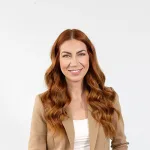 I am a leader with a personal mission to act as a source of inspiration for those I touch through my career, my community and my family. To live a balanced life, allowing me to connect and be present for everyday moments. Not to dwell on the past, but rather, build on times past to create the foundation for a bright future: a future that allows me to continue in roles where I have the opportunity to cultivate deep and meaningful relationships.
I am a leader with a personal mission to act as a source of inspiration for those I touch through my career, my community and my family. To live a balanced life, allowing me to connect and be present for everyday moments. Not to dwell on the past, but rather, build on times past to create the foundation for a bright future: a future that allows me to continue in roles where I have the opportunity to cultivate deep and meaningful relationships.

